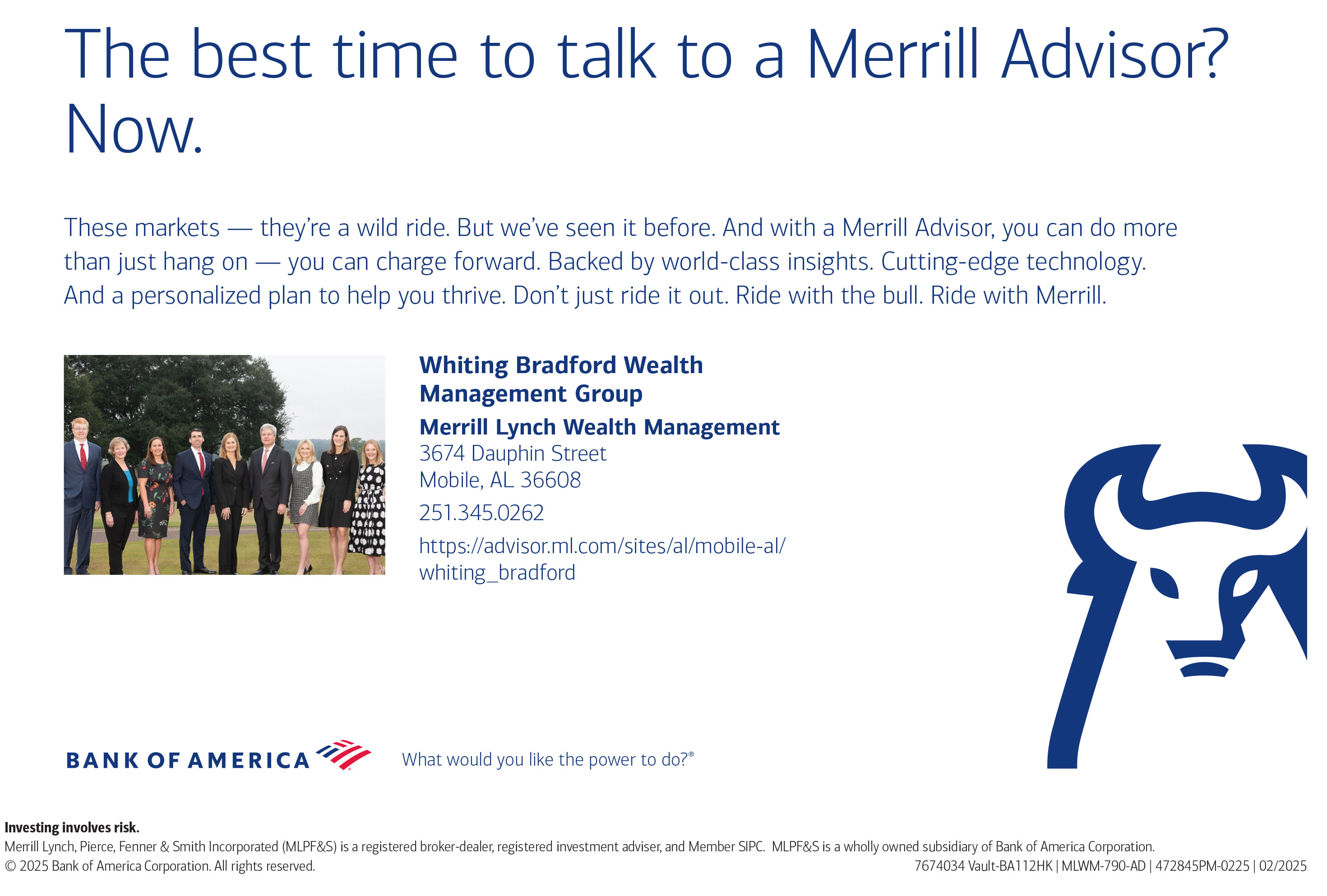
Writing a book is no small task. Having dipped my toes in the publishing business many years ago, I admire anyone who decides to put pen to paper to write a novel or their life story. It takes courage and willingness to be subjected to criticism and opinions that aren’t always kind.
In my brief time as a book packager, I was fairly often asked to review manuscripts and listen to book idea pitches. We met with New York publishing houses to gauge their interests, and I learned a lot in general about the publishing business and what goes into bringing a book to fruition. It is a difficult endeavor, to say the least.
Ann Bedsole has recently released her biography, Leave Your Footprint. If you know Ann, you know that she is a remarkable woman in every way, and will enjoy reading her story. If you don’t know Ann, I highly recommend you read her book.
Ann has led an active and interesting life, breaking barriers and improving the lives of the underserved, and she met these challenges with a unique style that embodies who she is. I have known Ann for a dozen years as she has been a lifelong friend and mentor to my wife, Linda, who has been involved with many of Ann’s projects.
Ann has never come across as someone who has something to prove. She sees things that need to be done and figures out how to accomplish them. At 93 years old, she is still working hard every day to make improvements for others. Her life history is remarkable; she is an incredible, gracious woman who has accomplished much with a certain aplomb reserved for very few people.
This article was never meant to be a book review. I was curious about the magnitude of deciding to write one’s life story, put it out there for public consumption, and let the chips fall where they may. Of course, none of this ever crossed Ann’s mind. I should have known.
Ann is a doer. She sees what needs to be done and figures out how to accomplish it. When her children asked her to go to her farm in Gosport, on the Alabama River between Grove Hill and Monroeville, to isolate when Covid reared its ugly head, she listened. The farm is a beautiful place to spend time. It’s a working farm, and Ann is in charge. It wasn’t a punishment but a precaution to keep her safe from the pandemic.
The only problem was that Ann was bored. Accustomed to being in the middle of projects, missions, and the community, she had no one to talk to. She didn’t have an “Aha “moment to write a book, she needed something to do to pass the time. She decided she would write down her childhood memories for her grandchildren.
Ann will tell you she lived an idyllic life growing up in the country. She was a tomboy of sorts and ran with the boys right up until they reached the age, as teenagers do, where the boys broke off on their own, leaving Ann to fend for herself. She admits now that this really hurt her feelings. She soon found some older “sophisticated” girls who accepted her into their lives, and life continued. Ann appreciated their kindness then as she does now.
These kinds of stories came to mind as she sat down for a couple of hours each day to write down her memories, thinking she would have something to give the grandchildren. “It was a way to quell the boredom,” she says. “And it got my mind working, which was something I needed to do in my isolation.”
Ann enjoyed sitting down at a computer and writing. The more she got into it, the more she recalled of her life. It was an exercise of sorts, and each day she would remember another chapter of her life. The different memories grew, and she was having fun reliving them.
.png)
Having had a long, successful career in state politics, she was at the forefront of bringing new life to the Republican party in Alabama. “When I was elected State Senator, there were only three other Republicans in the Senate. We quickly figured out that if we were ever going to get any of our bills passed, we’d better make friends and get along.” They did.
She tells stories of those days in Montgomery. I remember many of the things she wrote about but knew very little about what was happening behind the scenes. I found her tales about Montgomery fascinating and educational. She says this was her favorite part of the book to recall and write about.
As the first female State Senator ever elected in Alabama, She talks about how legislators were able to work within the system to get things done. “Those were fun times,” she says. “My proudest moment was passing the 911 emergency bill for the State of Alabama. No one even knew what it was, and it passed overwhelmingly without much discussion.”
After her political career, which included a run for Governor, Ann settled into community service in South Alabama. After her mother passed away, she created the Sybil Smith Trust, which sought out needed projects, provided support, and called on other private foundations to join in.
She led a group of talented volunteers to orchestrate Mobile’s Tricentennial Celebration, which was an overwhelming success, including a large flotilla of Tall Ships brought to Mobile. I remember taking my mother out to Middle Bay Lighthouse to watch the ships sail by with a proud smile on her face. Ann made that happen.
She founded the Alabama School of Mathematics and Science and led the charge to find a suitable building, seek funding, hire faculty, and recruit the first class of students. This is a statewide school for gifted students who otherwise might not get the education they deserve in their hometowns or rural communities. All students live on campus, and it's been a tremendous success with a lot of support from all over the state.
Years ago, Ann was concerned with the neglected homeless women and children living without shelter or hope. Through the Trust, she set out to assess the situation of these forgotten families. She recruited Linda, who worked with the Homeless Coalition of Mobile and Dumas Wesley Community Center, to estimate the gaps in services for homeless families and to help secure grant funding to build and staff the Sybil Smith Family Village.
To get the real story, Linda and others canvased underpasses at night where the homeless were camped and talked to them, many of which were women living there with their children. A plan was formed to create a homeless shelter for these families to help them get back on solid ground with a safe place to live and food to eat and teach them how to acclimate back into society.
The Sybil H. Smith Family Village was born and is still operated by the Dumas Wesley Community Center’s Transitional Housing Program. The 17-unit Sybil H. Smith Family Village has served almost 2500 women and children, focusing on accountability, individualized case management, life skills, and behavior modification.
Ann Bedsole is a difference-maker. To her, writing her life story was an exercise in recollection and let her see how much fun she has had throughout her life making things happen, for all the right reasons, I might add.
As you can imagine, Ann has a lot of admirers and collects friends and leaders easily. As her remembrances began to accumulate, she shared them with her close friend and project associate, Carol Hunter, the Communications and Marketing Director at the Downtown Mobile Alliance. After reading Ann’s work, Carol said, “This needs to be a book.”
Carol introduced Ann to Eddie Curran, a writer himself but also a well-established researcher. Eddie helped Ann edit the work and offered advice. Eddie wanted to ensure that Ann’s recollections were accurate and didn’t want her to create backlash or lawsuits by misrepresenting what she said happened.
Except for some minor edits, most of what is in Leave Your Footprint is exactly as Ann remembered it. I can tell you that Eddie is a thorough investigator, and their relationship worked well. Writing a book is a laborious undertaking. Organizing, editing, and rewriting to produce a manuscript is just the beginning.
Then you have to find a book designer, a printer, and a distributor. Once the book is finally in print, there is marketing that includes book signings and appearances throughout Ann’s footprint. “It’s been fun,” says Ann. “Eddie and I worked well together, and I’ve enjoyed visiting with old friends at the book events.”
After reading Ann’s work, I was completely enthralled. Ann is a special person. She can express honestly what she feels without being mean-spirited. She has led an amazing life yet never comes across as being pompous in any fashion.
She is always gracious, accommodating, and generous with her time and attention. As we speak, Ann is working hard to improve Bienville Square in Mobile and is still involved with the Alabama School of Mathematics and Science and other projects that will improve our community.
Lastly, I met Ann when she was married to Nick Holmes, Jr., a highly regarded architect and historian. Nick and my mother attended Murphy High School together and were always friends. I enjoyed an occasional drive to the farm in Gosport, listening to Nick tell stories and reflect on life. He was a true gentleman in every respect, and Ann loved him dearly.

Leave Your Footprint, her father's advice to make something of your life. Ann certainly has. You can purchase Ann’s memoirs at most local bookstores or order online. It is truly a good read and inspiring in so many ways. Thank you, Ann. It is always a joy to visit with you!




























